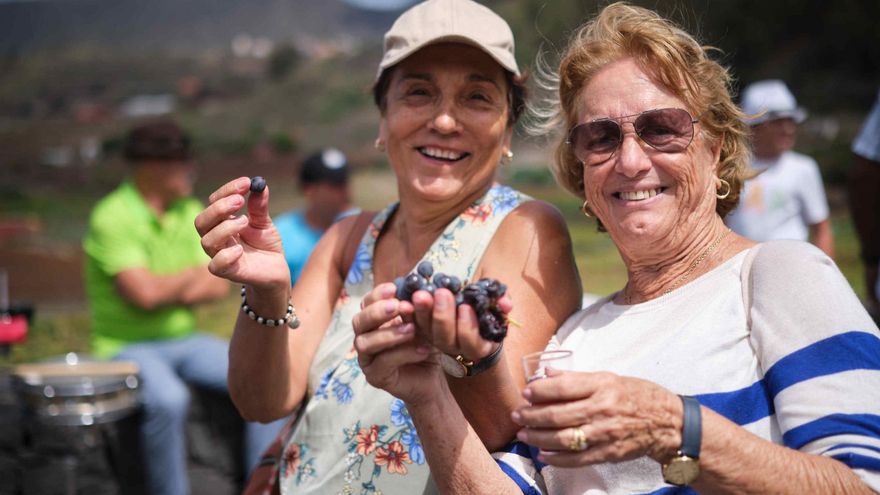Tegueste Cancels Wine Festival Events Due to Phylloxera Threat

The Tegueste Town Council has decided to cancel all events related to the wine sector planned for the traditional Grape Harvest Festival, as a preventive measure against the phytosanitary threat posed by phylloxera, which has recently been detected in vineyards on the island of Tenerife. This decision is in compliance with Order No. 116/2025, issued by the Department of Agriculture, Livestock, Fishing and Food Sovereignty of the Canary Islands Government on 20 August and has been agreed upon with the Town Council, the Tegueste Wine Association (AVITE), the Lomo Neighbours’ Association, and the La Padilla neighbourhood group.
The suspended activities include the ‘Harvest for Hope’ event, the Grape Bunch Competition, and the vehicle parade, originally scheduled for 12 and 13 September, along with the entire cultural and festive programme for those dates. Since the Harvest Festival events will not take place this year, no Grape Queen will be elected during the Gala for the Election of the Queen of the Remedies and the Harvest 2025.
The Mayor of Tegueste, Norberto Padilla, stated that “the municipality has always been a benchmark for defending rural life and the primary sector, which is why we take this decision with responsibility and a full commitment to the public interest.” He emphasised the need for coordinated action with other public administrations in light of the risk to the island’s agricultural ecosystem.
The Town Council supports the local viticulture sector and “understands that protecting the vineyard now is to preserve our economy for tomorrow,” explained Councilwoman Maura Martel, who underscored that “the cancellation of the events is necessary and that work will continue on safe alternatives to invigorate the municipality without compromising plant health.”
In a similar vein, the Councillor for the Environment, Julián Rodríguez, emphasised the ecological dimension of the problem: “We are facing a pest that has historically wreaked havoc in vineyard areas across Europe. Tegueste is not immune to this risk, which is why we are calling for citizen collaboration and strict compliance with the measures.”
The Tegueste Town Council also reminds citizens that, according to Order No. 116/2025 from the Department of Agriculture, Livestock, Fishing and Food Sovereignty of the Government of Canarias, any suspicion of the presence of phylloxera in a vineyard must be reported immediately to the relevant Regulatory Council or the Agricultural Extension Agency, in order to activate control protocols and prevent its spread.
Among the measures taken by the Government of the Canary Islands, the movement of plant material from vines, as well as tools, machinery, crates, soil, or any other element related to vine cultivation is expressly prohibited, both between the islands of the archipelago and between different geographical areas within the same island. Furthermore, the movement of grapes from Tenerife to another island is not allowed, nor is the departure of grapes from the Tacoronte – Acentejo region.
Similarly, the transfer of grapes from the rest of the islands to Tenerife is prohibited, as well as movements between the islands, except where there is an explicit authorisation from the General Directorate of Agriculture. Such transfers, if authorised, must comply with strict phytosanitary control conditions.
The movement of grapes between areas belonging to different Denominations of Origin within the island of Tenerife is also restricted and will be subject to prior authorisation issued by the competent authority.
As for the authorised transportation, it is established that both vehicles and crates used must be completely clean and free from vegetable matter, soil, leaves, or cuttings. Additionally, the load must be transported in closed vehicles or, alternatively, properly protected by tarpaulin or anti-thrips netting. Each time a change of origin plot occurs, thorough cleaning of the vehicles and containers used in the transfer will be mandatory.
Finally, workers involved in the grape harvest must disinfect all working utensils between farms or plots, as an additional measure to prevent the spread of the insect.
















